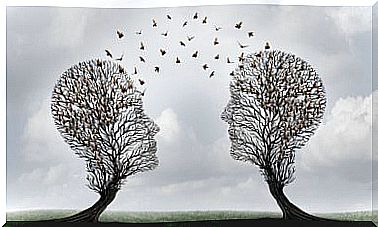Psychologists Also Go To Therapy

Psychology is a discipline that has various areas of application. In general, it is responsible for studying behavior, emotions and cognition. In most areas, psychologists guide people to generate in them a higher quality of life. But who guides them? Do they also go to therapy?
Psychology is a profession that turns out to be associated with many myths. Are psychologists crazy? How can psychologists get into trouble? Only people with a bad head go to psychologists. Even the classic phrase that many professionals in this area have heard as the culmination of a criticism: “and that you’re a psychologist.”
It turns out that although psychologists are of great help to others, they also have a life of their own and walk along railings and cliffs similar to those that people outside of psychology walk. So yeah, psychologists go to therapy too. In fact, in many cases it is a highly recommended practice.
Psychologists also go to therapy because they are people
We must not overlook the fact that psychology is a profession, and although most of those who practice it have a theoretical, practical and ethical background, they are still human beings. Therefore, psychologists, like any human being, have feelings, thoughts and behaviors. Thus, like any other human being, they can have great motivations, qualities that they want to enhance, difficulty in facing problems; in short, suffer biases or experience phenomena that can be better attended with the help of a psychologist.
In a global way, we can say that psychotherapy is intended for those who feel the need to deepen, improve, and understand aspects of their life related to cognition, affectivity and behavior. In addition, when some aspects of its functioning are affected, it is best to seek the help of a professional; just like when we feel sick we go to the doctor or when we want to face a lawsuit we go to a lawyer.

Psychologists also go to therapy because they are human beings who can be interested in:
- Enhance skills.
- Understand aspects of oneself.
- Immerse yourself in your inner world and your behavior.
- Understand how to deal with the problems that cause them difficulties.
- Learn to manage emotionally.
- Feeling better.
- Find a confidential place to express your anxieties and motivations.
- Seek professional advice.
- Acquire strategies to manage conflicts.
- See your affairs from another perspective.
- Empower yourself.
- Solve difficulties.
Now, some people believe that by being psychologists people can solve all their problems, but this is not the case. Although they can work on various aspects of themselves, they may have difficulty assuming others.
- First, because of the difficulty of approaching objectivity when it comes to being an analyzer and object of analysis.
- Secondly, because your own circumstances may disable you to intervene in your own life, taking the acquired knowledge as a reference.
- Finally, note that psychology is very broad, so that a psychologist may need help in a field in which he has not specialized.
Psychologists, beyond the others
Psychologists provide a service to others, but that does not mean that they should be forgotten. For this reason, psychologists also go to therapy, being able to enjoy the benefits derived from it.
On the other hand, psychologists can sometimes be seen by others as superheroes. They can be seen idealizing them thanks to the support that they can suppose in a moment of crisis, but we must not forget that idealization is a defense mechanism, which generates a distorted image of the other.
Psychologists also go to therapy to be better professionals
Psychologists also go to therapy, because this can help them to be better professionals. Sometimes psychologists do not know how to handle certain situations, by transference, that is, because they feel emotions towards the patient or something about the patient resonates with them. Now, when we talk about emotions, we are not referring exclusively to romantic love.
Furthermore, the analyst’s desire is involved in this process, as Lacan suggested in “Seminar number 8”. And, although it occurs in all psychotherapeutic processes, when the therapist is unable to continue with the therapy, due to what it generates, it is good to go to a consultation. This procedure is recommended by almost all branches of psychology, constituting a very important point in psychoanalysis.
In addition, it may happen that they attend because they do not master certain topics, or do not know what is the best way to intervene. Then, they go to psychotherapy to be guided by another professional to help them understand what is happening or to monitor the effectiveness of the intervention that they have already initiated.
Thus, they enrich themselves, they protect their patient, and they protect themselves. Well, having the support of another professional, they know how to act, if it is preferable to refer the case, or how to manage it. In this way, they grow as professionals, thanks to each learning.

Benefit of psychologists also going to therapy
That psychologists also go to therapy, can bring great benefits:
- Greater emotional management.
- Release of tensions.
- Greater self-knowledge.
- Professional growth.
- Face the difficulties that arise.
- Contribute positively to your environment.
- Complement to theoretical training.
Now, psychologists know the effectiveness and advantages of psychotherapy, therefore, they know what they can get from this process. In addition, they know the importance of health, and therefore could go after mental well-being through psychotherapy.









